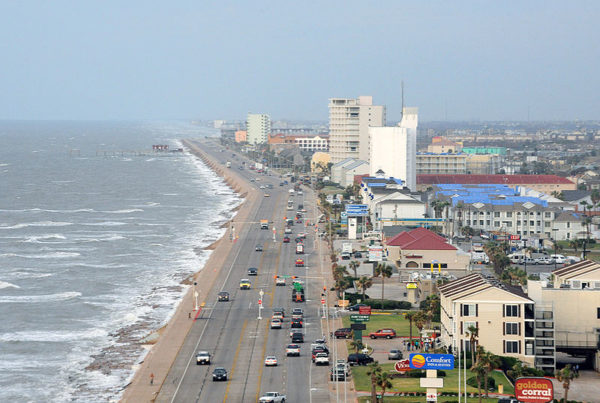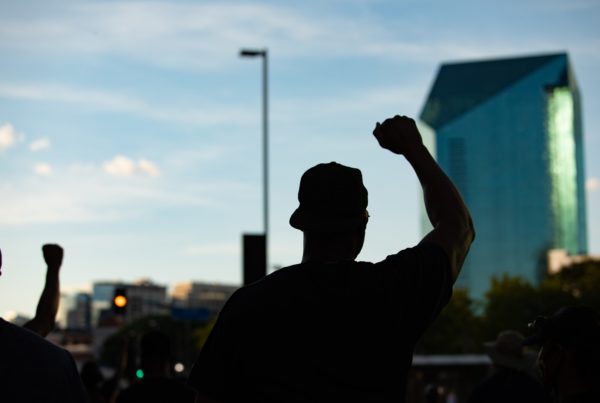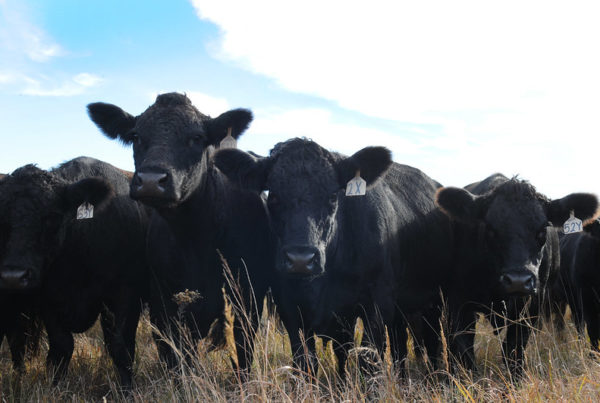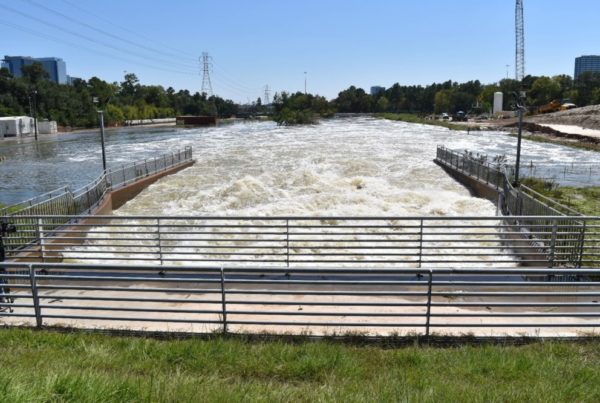From Texas Public Radio:
A TV plays in the background of what at first glance looks like a typical lobby in a typical medical clinic in McAllen.
Workers in scrubs come and go with equipment like a vitals cart. Flyers tacked onto the walls remind people to wear a mask and maintain a distance. Another flyer on glossy white paper with blue and green lettering is for a new medical trial: a potential COVID-19 vaccine.
Right in this clinic, Centex Studies, a clinical research company, is conducting vaccine trials for Moderna — one of the many pharmaceutical companies racing to produce a COVID-19 vaccine.
“This is my pharmacy,” said Shruti Konda, chief operations officer for Centex Studies, signaling to one of the many specialized rooms in the clinic. “He’s the one that prepares the drug. He’s called the unblinded pharmacist, so he’s the only one that knows whether patients are getting placebo or the vaccine. And he has nothing to do with the patients, so we keep this part behind here and he hands over the syringe to the nurse who will vaccinate them.”
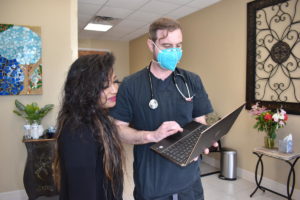
Shruti Konda, Chief Operations Officer for Centex Studies, and Westley Keating, a physician assistant and trial investigator, screen potential volunteers for COVID-19 vaccine trials at Centex’s study site in McAllen.
Moderna sends the pharmacy vaccine doses to test on volunteers from McAllen. Konda says they’ve been doing drug trials in McAllen since 2017, but this is their first vaccine trial.
“We heard from the pharma companies that were looking for sites, and our business development team reached out to them, and we did a qualification visit,” she said. “They made sure we have everything we need because it’s a big trial.”
For this study, the target is 30,000 participants from across the U.S., and Moderna picked roughly 89 trial sites. But, this site in McAllen has a very special participant pool. The border city is 85% Latino.
“Look, when you look at hispanics, we traditionally have high problems with hypertension, diabetes and heart problems,” said Congressman Henry Cuellar. “And we just want to make sure that Hispanics and other minorities were being taken into consideration as we did these trials, and we are seeing that right now.”
The Laredo Democrat whose district runs through Laredo, San Antonio and the Rio Grande Valley, asked for South Texas communities to be included in the trials.
But not all border residents have been enthusiastic. There are concerns about why the predominantly Latino border cities were chosen. Many of the residents in these trial sites are uninsured and low-income, and Moderna has signaled it plans to profit off its vaccine developed with federal funding.
Still, representation of minorities is important to ensuring the vaccine actually works, said Jennifer Erves, an assistant professor at the Meharry Medical College in Nashville, Tennessee.
“When we think about the history of clinical trials we know that certain groups have been underrepresented in research, hence why we may get a medicine or vaccine that may not work in those populations,” she said.
Alberto Castilleja is a 23-year-old finance student in Dallas. But he has family in Laredo, so when the pandemic hit, he moved back with them.
“You know, I’ve been keeping up with the news since April,” he said. “I’ve been aware of the 17 plus vaccine trials that are happening now.”
When he found out there would be trials for a COVID vaccine in Laredo, he decided to look into it. He said all it took to express interest was a simple online questionnaire.
“They were just looking for people who work in exposed environments or are high-risk and there was I would say a checklist of four criteria to be met, but the process didn’t take more than two minutes long,” he said.
Basically, they’re looking for people who may have been exposed while at their jobs, or people who live in a hotspot like Laredo.
Castilleja wants to participate, but he’s concerned that the trials may take advantage of a vulnerable community — a 95% Latino city with high uninsured and poverty rates.
“There’s always that distrust, especially when there’s cases like the 1976, you know, swine flu vaccination program that a lot of individuals got sick due to,” he said. “There’s always certain things that the government or medical institutions have done that target people of color in ways that impact us negatively.”
The history of clinical trials and medical research has made Black and Latino communities weary of the current vaccine trials
“There has been an issue with trusting research,” said Erves.
Erves studies the use of human papillomavirus vaccines among minorities, but this year she has been focusing on community engagement around the COVID-19 vaccine. She said many individuals are still haunted by research like the Tuskegee Experiment, where Black airmen with syphilis were unknowingly left untreated and observed by scientists for decades.
“Even now, in relating it to the potential vaccine for COVID-19, in research we are hearing the community say that, ‘No, no, I don’t want to be a guinea pig. I don’t want to be the first. Let somebody else go first,’” she said.
Medicine and clinical research have changed since infamous studies like the Tuskegee Experiment. There’s a rigorous, regulated process for research, and medicine is much more informed by science.
“We as researchers need to do a better job of engaging the community, so they understand what the process looks like,” she said.
Today, people volunteer for studies, have to provide their informed consent and are often compensated for participating.
“We’re answerable to regulatory bodies and we take it very seriously,” Konda said back at Centex’s site in McAllen. “We have the ethics board which is the institutional review board. They’re responsible for patient safety, and making sure the patient’s rights are not violated in any way. And then there’s FDA that regulates all of this.”
After Konda screens patients over the phone, if they qualify, the physician assistant, Westly Keating, screens them in person.
“When they get to phase three trials, those are basically the trials to see if the drug works, and how long does it work for?” Keating said. “So, that means they already know it’s safe. They’ve already used it on humans in smaller groups, and they know that there was hardly any side effects or very mild side effects.”
And once a person is enrolled in the study, they’re closely monitored for any potential side effects.
“That’s our observation room,” Konda said pointing to a room in which multiple people sat in chairs waiting as a doctor and nurses stood watched. “And this is where the patients get vaccinated with a couple of trials, and we observe them for like 30 minutes.”
They’ve enrolled more than 200 patients so far, and according to Centex, nobody has had any severe adverse reactions so far. After participants go home, they have to log how they’re feeling and check in with the trial team.
“If they do get COVID by any chance, I mean, we can still treat them and stuff,” Keating said. “They just kind of change into a different group of the study.”
Even after participants stop getting doses, they are monitored for two years.
But Castilleja says he’s been worried about another issue with access: health insurance. As a DACA recipient, he says he didn’t have health insurance until landing an internship this summer with a brokerage firm that focuses on health insurance.
“I got a sense of what the insurance industry looked like. I’ve never been insured, which is funny, but I finally got to understand how complex it is,” he said.
He’s not alone. In Laredo 29.1% of the population is uninsured, and in McAllen it’s 26.8%, according to Census data from 2018. Health insurance is key because without it the vaccine could be quite expensive.
And at a U.S. Congressional hearing in July, Moderna said it planned to profit off the vaccine — which has already received federal funding.
“We provided to them almost $2 billion dollars of taxpayer dollars,” Congressman Henry Cuellar said.
So, Moderna got taxpayer funding, and will charge taxpayers a second time when the vaccine becomes available. That could mean that taxpayers here in border communities that are helping test this new vaccine could potentially not have access because of the high price — estimated at $60 for the two doses needed.
“The key is going to be production and distribution,” Cuellar said. “Nevertheless, under the circumstances, there is a law that says all Americans have access … If somebody doesn’t have insurance, there will not be a hurdle to get a vaccine.”
Congress has continued to work with Moderna. The two reached an agreement for 100 million doses for $1.5 billion this month. So if its vaccine is successful, the federal government may have to pick up the tab for those who can’t afford it.
But Moderna isn’t the only company working on a vaccine. Centex in McAllen is starting vaccine trials with another company — AstraZeneca — soon. AstraZeneca did promise to price their vaccine at no profit.
Moderna did not respond to TPR News’ request for comment. But its CEO has said it will work out lower pricing for large orders and will “be responsible on price.” Still, its vaccine is reported as the most expensive one from all the contenders.
Back in Laredo, Castilleja finally got a response after weeks of waiting. He went in for a screening
“All the concerns and questions I had were as answered by the medical staff there,” he said.
Staff also warned him he could develop side effects like fatigue, a rash or even a fever. And after weighing all the information, Castilleja decided to enroll in the study.
“This has the potential to make things go back to a new normal, reduce deaths if it’s effective… And lastly, it was very comforting knowing that there was other people from Laredo signing up to this trial the day I got there to the clinic,” he said.
He’ll have to go back for a “booster shot” in September.
Meanwhile, officials in the border county of Starr announced they are working on launching a vaccine trial there to recruit more Latino participants.




